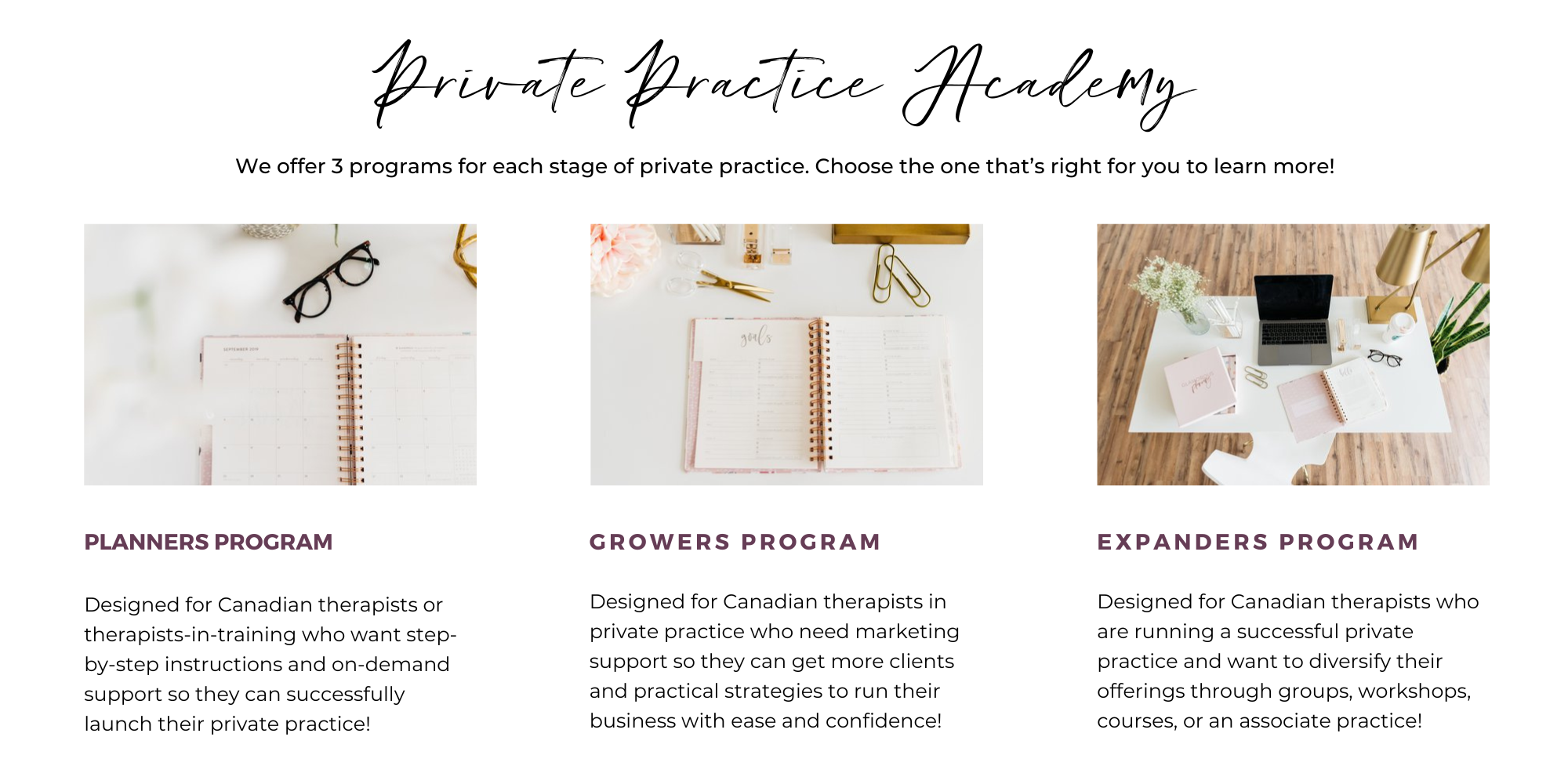Tracking Your Finances 101: 5 Things You Must Do To Set Your Private Practice Up For Success
As a new therapist or counsellor in private practice, the finances end of things can be scary. There is so much to know, and many of you just want to know where to start!
When you’re starting out, there are 5 things I recommend that all therapists and counsellors who are new to private practice do.
1. Get a Great Small Business Accountant
If you don’t have a strong background in finances and accounting, and you’re not used to filing business taxes yourself, ask around and find a really great small business accountant who can answer your finance and tax-related questions.
Just like therapists, not all accountants are the same. Do a bit of research, read reviews, and find out who in your area has a good reputation for managing small business accounting.
Having an experienced, small business accountant file your taxes for you can run you anywhere from $100 - $5000 per tax season. Ask about their pricing in advance so you don’t receive any surprises. The average rate is more in the ballpark of $500 - $1000 per tax season depending on how much you need them to do, and how complicated your taxes are.
A good accountant should also be able to tell you what expenses you can write off as business expenses, and help save you money at tax time.
2. Get a Separate Bank Account For Your Business
Don’t try to manage all of your personal expenses and business expenses from one bank account. This will create a nightmare for you (and your accountant) at tax time. You don’t need an official Business Bank Account, just a separate personal checking account will do.
I actually recommend creating two accounts: one for your income, and one for your business expenses. In the first account, all of your income is deposited there, and then you transfer the amount you need for your personal expenses over to your personal expense account each month, and likewise for your business expenses, taxes, and savings.
(On a related note, I highly recommend the book Profit First by Mike Michalowicz)
3. Track Your Income and Expenses Separately
Separating out your income from your expenses into different bank accounts, is one easy and effective way to track your income and expenses.
If you don’t want to do that, I recommend finding a way that works for you—whether it’s an excel spreadsheet, or an online software program like Quickbooks, Freshbooks, or Waveapps. It doesn’t matter how you track your income and expenses, just that you do. Find a way that works for you and keep up with it on a monthly basis!
If you set aside an hour each month to organize your income and expenses it will save a TON of time at the end of the year.
4. Keep Receipts For All of Your Business Expenses
In addition to tracking your business expenses, do keep all of your receipts. Whether you file the paper receipts in a folder, or take a picture and track them on an app, it doesn’t really matter.
Again, just pick a tracking method for your receipts that works for you. You won’t necessarily need to give these to your accountant (as long as you have them all listed on a spreadsheet or in whatever software you are using), but you will need them as proof of the expenditure if you ever get audited. Keep the original receipts for at least 7 years as you can be audited at any time, for past year's taxes.
5. Set Aside 20-25% of Your Monthly Income For Taxes
This might come as a big shocker if you’re new to owning your own business, but you are most likely going to owe 20-25% of your gross income in taxes at the end of the year. About one-third to one-half of this will be personal taxes, and the other half to two-thirds will be GST/HST.
In your first one to two years of practice, you might owe a lot less—around 15%. This will primarily be due to tuition credits (assuming you just graduated) and because you are earning less. But later on, and especially as you move into higher tax brackets, you could owe as much as 30-35% of your annual income, in taxes.
This is one of the reasons why having a great accountant is so important. They can help you understand what you can write off and how to maximize your business expenses. Additionally, a good financial advisor (ideally who can work alongside your accountant) can help you lower your annual taxes by investing in Retirement Savings.
These are just a few of the most important, basic things to know, in order to start getting a handle on your small business finances.
If this information is all new to you, or you feel overwhelmed, I can’t stress enough the importance of getting the right support from a small business accountant and a financial advisor.
If you’re looking for more fulsome support for your business, consider one of our BYPP Programs to help grow and scale your business successfully.

